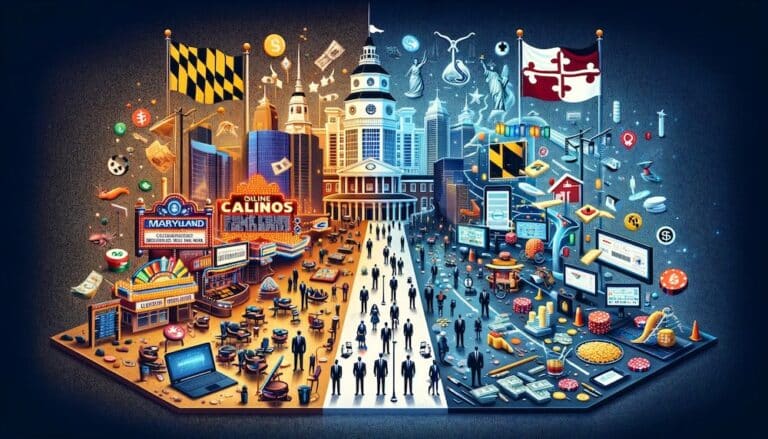Maryland stands at a crossroads with a pivotal decision that could redefine its gambling landscape. Nearly a decade and a half after embracing casino gambling, Maryland lawmakers are poised to chart a new course by contemplating the legalization of online gambling—a move that carries significant implications for education funding, the future of traditional casinos, and the societal impact of gambling addiction.
The discussion around online gambling is not new to Maryland’s legislative corridors. A similar proposition was tabled last year but did not secure the necessary support to become law. The current deliberations breathe life into the debate, presenting an opportunity to extend gambling from the casino floor to the virtual realm, making it accessible to anyone with a smartphone.
This potential shift raises a spectrum of opinions and concerns. Critics, including addiction specialists like Mike Gimbel, voice apprehensions about the accessibility of gambling platforms to minors, envisioning scenarios where students might engage in gambling activities from their school’s lunchrooms. The ubiquity of smartphones could indeed blur the lines between recreation and addiction, creating a pathway to gambling that is hard for young individuals to resist.
Proponents of the measure argue that the legalization of internet gambling could serve as a lucrative revenue stream for Maryland, specifically earmarked for educational initiatives. Projections estimate that online gambling could generate up to $97 million over five years, offering a substantial financial injection into the state’s education sector. This aspect of the legislation underscores a broader trend of seeking innovative funding solutions for public services, albeit not without its ethical dilemmas.
The prospect of online gambling legalization has also prompted reactions from the state’s casino operators. There is a palpable fear that the introduction of internet gambling could divert customers away from traditional brick-and-mortar casinos, potentially undermining a significant economic sector that has flourished under the state’s previous gambling policies. The tension between innovation and preservation encapsulates a broader debate on how best to balance progress with the protection of established industries.
Beyond the economic calculations and policy considerations lies a deeper concern echoed by experts and critics alike: the potential for online gambling to cultivate a new generation of gamblers, ensnared by addiction at a younger age. The ease of access to gambling platforms, combined with the allure of quick wins, presents a potent mix that could have long-lasting effects on Maryland’s social fabric. “We have to stop raising money for the state on the backs of our children,” Gimbel cautions, highlighting the ethical quandary at the heart of the debate.
As Maryland lawmakers weigh the pros and cons of legalizing online gambling, the decision before them is multifaceted. It is a balancing act between leveraging technological advancements for economic gain and safeguarding the welfare of the state’s younger residents. The discussions encapsulate a broader societal challenge: how to navigate the opportunities and pitfalls presented by the digital age.
In the coming months, the fate of online gambling in Maryland will be decided in the legislative arena. The outcome will not only shape the state’s economic landscape but also set a precedent for how it confronts the intertwined issues of innovation, addiction, and youth protection in the digital era. As the debate unfolds, all eyes are on Maryland as a bellwether for the future of gambling in the United States.

David Garato is a luminary in gaming journalism, renowned for peeling back the curtain on the gaming world with his witty and insightful commentary. A decade into weaving stories from the pixelated edges of indie games to the expansive universes of AAA titles, David’s work is a thrilling blend of analysis and adventure. When not writing, he’s live-streaming, sharing his gaming exploits with an engaged and growing audience. David doesn’t just write about games; he lives them, making him a trusted guide in the gaming community.


